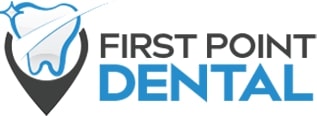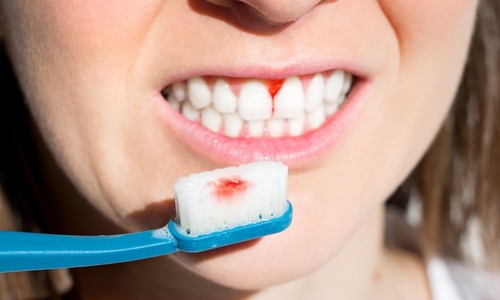How to Deal with Pyorrhoea: Key Causes, Symptoms, & Treatments
How to Deal with Pyorrhoea : Oral health and general health go hand in hand. Good oral health means having a healthy mouth- no teeth and gum issues. As gums provide support and stability to the teeth, healthy gums contribute to healthy, strong teeth and in turn good oral health. Therefore, keeping gums disease-free is essential.
Pyorrhoea is the most common gum problem or gum infection that should be promptly addressed by a dental expert to avoid complications. In this article, we will be learning about pyorrhoea- its causes, symptoms, and treatment.
What is Pyorrhoea and How to Deal with Pyorrhoea?
Pyorrhoea is a term derived from the Greek language and means “Discharge of Pus”. It is a medical term for an inflammatory gum disease, also referred to as periodontal disease or periodontitis. It is a multifactorial disease that has progressed from untreated gum infection- gingivitis and is found to affect the soft and hard tissues of the mouth- the gums, ligaments, and bones inside the mouth. When left untreated, it can eventually cause tooth loss.
Why does Pyorrhoea occur?
Poor dental hygiene is primarily the culprit of pyorrhoea. Pyorrhoea causes or develops because of a build-up of plaque or tartar along the gum lines. Plaque is a sticky biofilm formed by a group of bacteria (called pyorrhoea alveolaris) feeding onto the trapped food particles and releasing acids and toxins that cause damage to the teeth, gums, and bones of the mouth. If dental plaque is not removed by a dental professional for long, it gets hardened to form a black calcified structure called calculus or tartar.
Tartar build-up along the gum line leads to gums inflammation, bleeding, and pain or discomfort as well as receding gums. All of which are signs of pyorrhoea. Those who are not serious about practicing a good oral hygiene routine and being regular on dental check-ups will invite oral health issues including pyorrhoea. Diabetics and those having poor lifestyle habits like smoking are at high risk of developing pyorrhoea. People aged above 40 years, and those who have broken dental fillings or ill-fitting dental crowns or bridges are more likely to have pyorrhoea. In some cases, an underlying medical condition, certain prescription drugs, hormonal changes (like during pregnancy), and poor nutrition can also lead to gingivitis and ultimately Pyorrhoea.
How to recognize Pyorrhoea?
A gum disease may not be easily identifiable. The condition is hardly painful. Here are the common signs and symptoms of Pyorrhoea that one should be familiar with:
- Bleeding gums while brushing or flossing teeth
- Gums that are puffy and swollen
- Persistent foul-smelling breath
- Pain while biting, chewing, brushing
- Discharge of pus from the gums
- Gums recession
- Soft and supple gums
- Formation of pockets between the teeth and gums
- Jawbones resorption
- Spacing between the teeth
- Loosening of the teeth or teeth feels like being rootless/supportless
- Red, bright gums, sparkling gums, or purplish surfaces
- Abscess of the periodontal canal
- Teeth or partial dentures do not fit the same way as they used to while chewing.
How to deal with Pyorrhoea?
To get Pyorrhoea treated, the first step is to consult a dental professional. A dental professional would recommend and run the following treatments for Pyorrhoea:
- Sustenance of proper oral hygiene practices- Dental hygienists or dental experts provide professional guidance on how to take care of teeth and gums and recommend the best oral care products to use. They provide advice on how to brush and floss to keep teeth and gums disease-free.
- Scaling and root planing- These are dental procedures used to remove the build-up of plaque and tartar from the teeth surface and their roots, along the gum line. They are followed by teeth polishing and fluoride treatment. Deep cleaning of periodontal pockets is required for quick healing.
- How to Deal with Pyorrhoea with Antibiotics- Topical or oral antibiotics are prescribed to treat bacterial infection of the mouth.
- Flap surgery- In case, all other treatment approaches fail to work, a periodontist may recommend a flap surgery. Flap surgery helps remove the plaque or tartar formed beneath the gums. In case, there is a loss of jawbone, bone grafting surgery is performed.
Besides these, the patients can take more measures such as avoiding smoking or chewing tobacco and going for follow-up visits without fail.
Is Pyorrhoea curable?
If pyorrhoea is detected in its early stage, the disease is preventable. On the flip side, pyorrhoea in the later stage causes harm to the gums, teeth, and bones which can’t be restored.
Comprehensive and extremely efficient non-surgical treatment of gum disease of varying stages including advanced pyorrhoea is possible with a dental expert. With in-office dental treatment, executed by a dental professional, primarily removal of dental plaque or tartar from the teeth and gums surface, Pyorrhoea is 100% curable.
Is Pyorrhoea preventable?
Yes, Pyorrhoea is avoidable by promptly treating the gum infection. Gum infection is preventable by practicing proper oral hygiene and oral care. The preventive measures include:
Daily brushing teeth twice using proper technique with the right toothbrush and toothpaste
Regularly going to the dentist after a minimum gap of 6-12 months for oral health check-ups and professional dental cleaning.
What if pyorrhoea is left untreated?
Pyorrhoea can lead to jawbone and tooth loss. There will be a loss of dental stability and a lack of strength in the teeth. As a consequence, there will be difficulty in chewing food properly and proper digestion of food will be affected.
With the advancement of the disease, the infection of the gum would spread to other body parts through the bloodstream due to the mixing of bacterial toxins with blood. When this happens, an individual would suffer from serious health risks.Hence, it is important to get your pyorrhoea treated for an improved oral health. For more details on pyorrhoea treatment visit First Point Dental Clinic.

